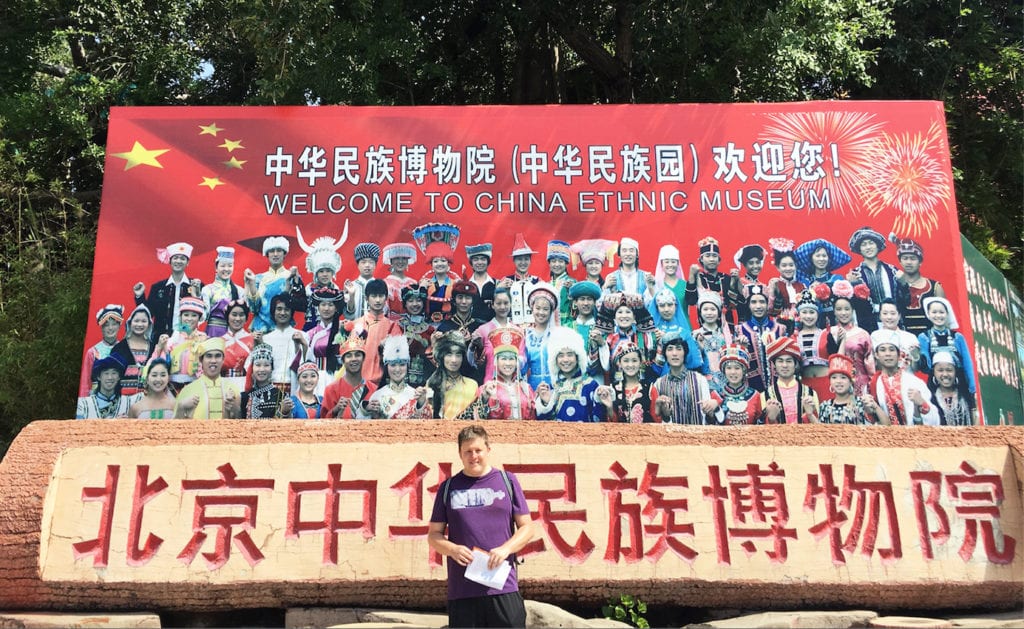
In Spring 2017, Communication Studies professor Christopher Finlay received the prestigious Matteo Ricci Fellowship from the Beijing Center in China, which allowed him to travel to that country for one month over the summer to conduct research. Finlay’s work and research explores how nation states utilize hosting the Olympic games to make statements about their country to both international and national audiences.
This fellowship gave Finlay unlimited access to the largest English Language library in Beijing, which is housed in the center. His research this summer expanded upon on work he did as a graduate student on the 2008 Beijing Olympics. For that Olympics, China built an enormous ceremonial space called the Bird’s Nest, which will be reused in the Winter Olympics in 2022. Finlay looks at what these fantastical and expensive arenas communicate to international audiences, what impact this perception has for China in a geopolitical sense.
While half of the ceremonial space create for the 2008 Olympics is the Bird’s Nest, the other half is a pioneer-type village, dedicated to celebrating China’s culture with the hopes of giving a voice to China’s minority groups. This area is open all year round, and is meant mainly for Chinese audiences. In contrast to the Bird’s Nest, which projects to the international stage, the goal of the pioneer village is to instill a sense of national pride and unity in the hopes of quelling rural tensions and agitation, which is an ongoing problem in China among the various minority groups. The Chinese government hopes that by incorporating elements that foster pride, minorities will feel they have a voice and will react more positively toward the government and its policies.
By traveling to Beijing, Finlay is able to better understand the geopolitical forces at play in the development of these large-scale Olympic structures, and also how countries make these building relevant after the main event has passed. “In my research, I find it is so important to travel to these sites to have an insider experience,” said Finlay. “By seeing the everyday, lived experience of the space, and observing how other people experience the space, I can better break free from Western preconceptions and truly explore the deeper implications of the space from multiple perspectives.”
Part of the fellowship involved a series of lectures, presented by Finlay to an audience of international students and researchers at The Beijing Center. These lectures explored many topics, including the Olympics, the evolving and complicated relationship between the United States and China, as well as questions involving digital media and its globalizing effect on a place like China.
One goal of this trip was to begin developing an ongoing relationship between the College of Communication and Fine Arts and the Beijing Center, with the ultimate goal of a study abroad program for our students. “With access to immersive educational opportunities in different parts of the world, our students will be able to develop new perspectives on their studies,” said Finlay. “I want my students to explore academic topics through a richer lens, and traveling to new places and having that insider viewpoint gives them a holistic experience that is impossible to replicate at home.”



